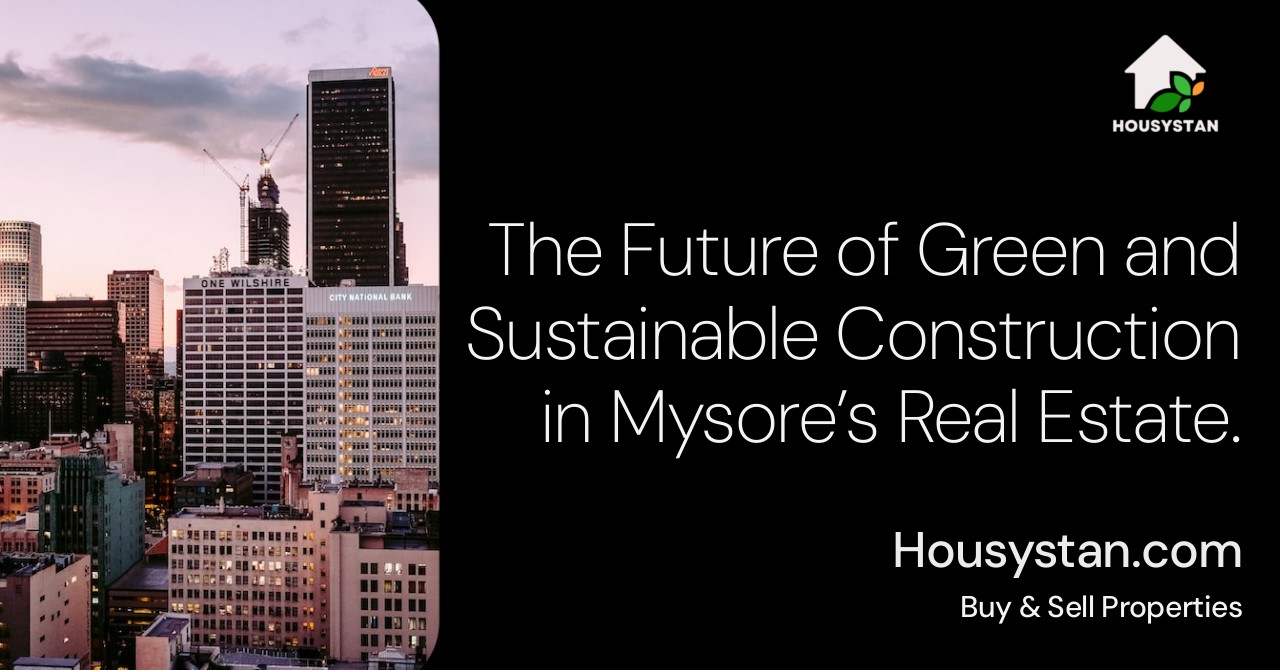The Future of Green and Sustainable Construction in Mysore’s Real Estate
Read latest blogs and articles from Housystan

The Information mentioned here was last updated on:
29/1/2026The Future of Green and Sustainable Construction in Mysore’s Real Estate
Mysore, one of Karnataka’s fastest-growing cities, is emerging as a prominent hub for environmentally responsible development. The demand for green and sustainable construction in Mysore’s real estate sector continues to rise, driven by increasing awareness among homebuyers, proactive government policies, and a commitment to preserving the region’s natural beauty. With a rich heritage and modern infrastructure, Mysore provides the perfect backdrop for eco-friendly building practices that ensure sustainability for future generations.
Eco-conscious property buyers in Mysore are seeking homes and commercial spaces that minimize environmental impact while maximizing energy efficiency and comfort. Developers in the city are now integrating green building techniques such as rainwater harvesting, solar panel installations, natural ventilation systems, and the use of locally sourced, non-toxic materials. These features not only reduce utility costs but also enhance indoor air quality and overall living standards, making Mysore an attractive destination for sustainable real estate investments.
- Verified Tenants/Buyers
- Unlimited Property Listing
- Zero subscription/charges fee
Government initiatives and policies in Karnataka are further encouraging the shift toward sustainable construction. Incentives for green-certified projects, streamlined approval processes, and stricter regulations on waste management and pollution control have motivated builders in Mysore to adopt advanced eco-friendly technologies. These measures are helping position Mysore as a model city for green urban development in South India.
Mysore’s unique geography, lush landscapes, and pleasant climate make it ideal for sustainable architecture. Developers are increasingly embracing innovative design solutions like green roofs, rain gardens, and energy-efficient lighting, which blend seamlessly with the city’s natural surroundings. The future of Mysore’s real estate will be defined by a harmonious balance between growth and environmental stewardship, ensuring that new constructions contribute positively to the city’s ecosystem.
As Mysore continues to expand, embracing green and sustainable construction practices not only secures a healthier environment but also boosts property values and appeal among discerning buyers. By setting benchmarks in eco-friendly real estate, Mysore is paving the way for a greener tomorrow, attracting residents and investors who value sustainability, innovation, and quality of life in one of Karnataka’s most cherished cities.